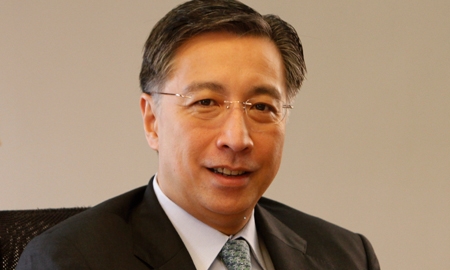While
SM Investments Corporation (
SMIC) is a household name for shopping malls, the group’s banking arm, Banco de Oro Unibank, Inc (
BDO) is another heavyweight, which has risen to fame in the financial sector. A full-service universal bank that views itself as the ideal partner for foreign investors, BDO was named Best Bank in the Philippines 2011 by FinanceAsia, The Asset Asian Awards, Alpha Southeast Asia, Asiamoney and Global Finance.
In the early 1990’s, Teresita Sy-Coson, daughter of Henry Sy (founder of SMIC), took over as Chairperson of what was then a small commercial bank, and by 1996, she had transformed it into a universal bank. In 1997, she brought Nestor Tan (who had been working as COO for the Financial Institution Services Group of BZW, the investment banking subsidiary of the Barclays Group) on board as CEO and together, they took Banco de Oro to even greater heights.
In 2004, when prices were plummeting on the Philippine Stock Exchange, Ms Sy-Coson suggested the family buy into Equitable, the third largest bank in the country. Banco de Oro acquired a 24 per cent stake in 2005. By 2006, it had 35 per cent and in 2007 merged with Equitable to form Banco de Oro Unibank, Inc. By 2008, it was the largest bank in terms of assets, a position it continues to hold today.
“Our aggressive growth here is focused on markets that will be least affected by any kind of upheaval.” Nestor Tan,
CEO of BDO |
SMIC owns 58 per cent of the bank; most of the rest is publicly traded. BDO is worth over P1 trillion (£14.7 billion) – the first local bank to achieve this asset base – and in 2011, posted an audited net income of P10.5 billion, representing a 19 per cent growth over the P8.8 billion the bank posted in 2010. It also expanded its loan portfolio by 24 per cent (five percentage points higher than the industry’s average), a figure made even more impressive when viewed alongside a decline in BDO’s non-performing loan ratio, to 3.4 per cent at the end of 2011, from 4.7 per cent the previous year.
Mr Tan is confident of continued domestic growth for BDO, owing to the Philippines’ having kept its distance from the global economic downturn. “If you look at most of our markets – real estate development, trading to support consumer goods, agricultural goods, and the local aqua and agri industries – they are largely insulated from what is happening outside. Yes, we are conscious of what is going on in Europe and the US, but our aggressive growth here is focused on markets that will be least affected by any kind of upheaval,” he says.
Earlier this year, the bank announced plans to raise its core capital by $1 billion in June through a rights offer. This capital is intended to both support medium-term local growth objectives and to afford BDO a buffer to the upcoming Basel III capital guidelines of the Bangko Sentral ng Pilipinas (BSP). Although BDO already surpasses the proposed minimum capital adequacy ration (CAR) of 12.5 per cent and the Tier 1 ratio of 10 per cent, the raised capital will provide a cushion that will allow the bank to sustain its growth momentum.
“We believe that we need the capital to support our growth because we want to take advantage of the growing optimism of the local economy,” says Mr Tan. “At the same time we would like to be a major player in the Philippines and regionally at some point of time.”
As for sustaining its large market share, Mr. Tan says that the bank must merely “focus on the right markets, uncover the right opportunities, and make sure we doesn’t stumble in the credit side. From there, size will just come naturally. So, our philosophy is this: ‘Let us do what we are supposed to do well, and all the rest will take care of itself’.”

0 COMMENTS